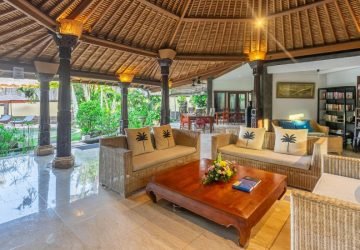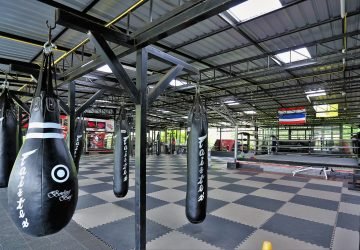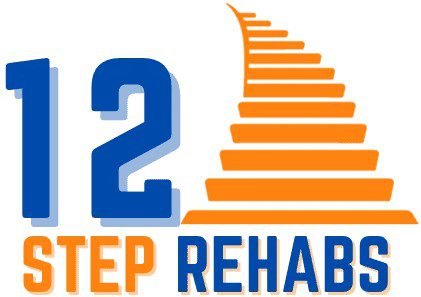Rehabs in Asia
Rehabs in Asia: Unlocking Quality Care with Western Therapists
The growing popularity of rehabs in Asia among Western clients and English-speaking locals can be attributed to several compelling factors. A major attraction is the opportunity to escape one’s usual environment and create physical distance from daily triggers, enabling individuals to focus solely on recovery. These facilities provide a holistic approach to healing that appeals to those seeking comprehensive and culturally immersive treatment experiences.
Moreover, the presence of experienced Western therapists adds another crucial layer of comfort and familiarity, easing the concerns of clients who might be hesitant to seek treatment in a foreign setting. These professionals, who often bring personal experiences with addiction and recovery, provide deep insights and empathy. Their extensive training helps them navigate the cultural differences and challenges that Western clients might face, ensuring that they feel comfortable and supported throughout their recovery journey.
Not only do rehab centres in Asia offer stunning settings, but they also offer a high level of privacy, personalised attention, and luxurious amenities—all at a fraction of the cost of similar facilities in the West.
The Benefits of Going to Rehab in Asia
Aside from employing Western and Western-trained therapists, rehab centres in Asia are renowned for their innovative treatment approaches, integrating evidence-based therapies like Cognitive-behavioural therapy, Dialectical behavioural therapy, and the 12 Step program with holistic approaches that include yoga, breathwork, meditation, and other mindfulness practices. Such a comprehensive blend of treatments addresses the psychological, physical, and spiritual aspects of addiction.
Cost-effectiveness compared to Western countries:
When comparing rehab costs across different regions, Southeast Asia stands out as a particularly cost-effective option. For example, a full course of treatment in Bali or Thailand can cost up to 50% less than in countries such as the US, Australia, or Europe. This price difference makes it an attractive option for those seeking quality treatment at a more affordable rate.
The cost of rehab programs can vary depending on the type and duration of treatment, as well as the level of care provided. Accommodation costs can also vary, with some rehab centres offering luxury amenities and private villas, while others may have more basic features.
Estimated Typical Costs for Inpatient Addiction Treatment for Rehabs in Asia
- High quality inpatient treatment with private room accommodation: $8000 to $10,000 per month
- High quality inpatient treatment with private resort style villa: $10,000 to $15,000 per month
These prices usually include: Accommodation, airport pickup and drop-off service, all-inclusive meals, educational group sessions, individual therapy, massages, yoga and meditation sessions, exit planning, and aftercare support
Things that are typically not included in the price: Flights, travel health insurance, personal expenses, treatment of unexpected medical conditions.
Other Benefits
Serene environments that are conducive to recovery:
Many Asian rehab centres are located in serene and peaceful environments, such as tropical islands, mountains, or forests. These natural surroundings can provide a calming and healing atmosphere, helping clients to focus on their recovery and reduce stress and anxiety. Additionally, many rehab centres offer luxurious amenities, such as private rooms, swimming pools, and spa services, which can further enhance the recovery experience and promote relaxation and well-being.
Western Practices:
- 12 Step Recovery: Developed by Alcoholics Anonymous (AA), this model has been adopted by other recovery programs worldwide such as Narcotics Anonymous (NA), Gamblers Anonymous (GA), and more. Since then, it has been widely recognized as one of the most successful approaches used for addiction treatment. The program is designed to guide individuals through a process of self-examination, acknowledgment of wrongdoing, making amends, and fostering spiritual growth. It also acknowledges that addiction is a chronic condition requiring ongoing support, providing access to 12 Step meetings worldwide to enable individuals to build a support network that extends beyond formal treatment.
- Cognitive Behavioral Therapy (CBT): This is a common Western therapy that focuses on changing negative thought patterns and behaviours. It is commonly used to treat anxiety, depression, and addiction
Dialectical Behavior Therapy (DBT): DBT is a type of CBT that emphasizes the regulation of emotions. It is often used to treat individuals with borderline personality disorder and those who have difficulty managing their emotions.
Individual therapy: This is a client-cantered counselling style that helps individuals resolve ambivalent feelings and insecurities. It is often used to work on developing coping strategies for maintaining sobriety.
Group Therapy: In-house group therapy. These sessions provide a supportive inhouse community where individuals can share their struggles and successes, receive encouragement, and learn from the experiences of others who are navigating similar paths to recovery. According to a study by the American Pyschological Associaton, issues related to shame, stigma, or feelings of isolation are often better addressed in group therapy than an individual. This can also be due to the sense of belongingness created within the group environment.

Local Practices:
- Meditation and Mindfulness: These practices are often used in Asian cultures to promote mental well-being. They can help individuals manage stress, improve focus, and increase self-awareness.
- Yoga and Breathwork: These physical practices originated from Asia and are often used for holistic healing. They can help improve physical health, reduce stress, and promote mental well-being.
- Sound Healing: Aims to induce relaxation and harmony in both the body and mind by using vibrations from instruments like singing bowls or drums. These therapeutic sessions are designed to elevate mood, reduce anxiety, and facilitate emotional healing, providing a comforting touch for those on the path to recovery.
Which Asian Countries Offer the Best Rehab
Although there is a wide variety of rehab facilities in countries such as; India, Singapore, Philippines, and Malaysia. In our experience, we have found the rehabs in countries such as Bali and Thailand to offer higher quality treatment programs and more Western-trained staff. Please find a selection of the most recommended rehabs in Asia
Recommended 12 Step Rehabs in Asia

Sivanna - Bali, Indonesia
- Personalised Treatment: Tailored, highly effective addiction treatment led by an international team in a serene Bali setting.
- Comprehensive Programs: Combines inpatient rehab for drug and alcohol dependencies with mental health support for dual-diagnosis cases.
- Luxury Accommodations: Offers private rooms and upscale amenities amidst Bali’s natural beauty.
- Holistic and Alternative Therapies: A blend of traditional and alternative therapies, including yoga and Reiki, to support recovery.
- Family Involvement: Features an inclusive family program to repair and strengthen relationships affected by addiction.

Kembali - Bali, Indonesia
- Kembali Recovery Centre: Luxury rehab in Bali specialising in drug and alcohol recovery.
- Treatment Philosophy: Holistic Bio-Psycho-Social-Spiritual model, tailored to individual needs.
- Facilities: Luxurious villas in a tranquil tropical setting near Ubud, with private/shared rooms and upscale amenities.
- Programs: Comprehensive residential treatment, Recovery & Beyond, and Aftercare with a focus on individual therapy, group sessions, and holistic therapies.
- Unique Features: Experienced clinical team, many in recovery themselves, offering personalised care amidst Bali’s serene environment.

Cabin - Chiang Mai, Thailand
- Premier Luxury Rehab: The Cabin Chiang Mai, nestled in a peaceful tropical setting.
- Evidence-Based Approach: Over 5,000 treated with techniques like CBT and mindfulness.
- Highly Experienced & Qualified Team: Dedicated, western-trained addiction specialists. Many are in Recovery themselves.
- Serene Location: Situated by the Ping River, enhancing recovery.
- Effective Treatment: A blend of tranquillity and modern recovery methods.
- Global Recognition: Renowned worldwide, accredited by leading health organisations.

Holina - Koh Phangan, Thailand
- Holistic Recovery Program: Integrates a 12-step approach with psychotherapy and holistic practices.
- Tropical Paradise Setting: Located in Koh Phangan, offering an idyllic environment for recovery.
- Comprehensive Treatments: Includes trauma resolution, body movement, breathwork, and more.
- World-Class Therapists: Access to top complementary therapists living on the island.
- Ideal Healing Environment: White beaches and turquoise seas enhance the recovery experience.
- Tailored Post-Rehab Support: Ensures long-term success with a personalised post-rehab program.

One Step - Chiang Mai, Thailand
- Holistic Treatment Program: Combines Western psychology with Thai hospitality in a comprehensive recovery approach.
- Wide Range of Addictions Treated: Addresses drug, alcohol, process addictions, and dual diagnosis.
- Resort-Style Facilities: Offers extensive fitness amenities in a tranquil setting for optimal recovery.
- Innovative Therapies: Includes CBT, Muay Thai, fitness boot camps, mindfulness, and nutraceutical therapy.
- Nutrition-Focused Recovery: Emphasises a dopamine-boosting diet with locally sourced ingredients.
- Affordable Excellence: Provides high-quality treatment at a fraction of Western costs, led by renowned experts.
Planning Your Rehab Stay
Visas and Other Considerations
Visa requirements for Asia can vary significantly depending on the country you plan to visit, your nationality, the purpose of your visit, and the duration of your stay. We recommend you can contact us for assistance or guidance in navigating the visa application process, below is a general overview:
Visa-Free Countries: Some Asian countries have visa-free or visa-on-arrival policies for certain nationalities. For example, many Southeast Asian countries like Thailand, Malaysia, and Indonesia offer visa-free entry or visa-on-arrival for tourists from numerous countries for a limited duration ranging from a few days to several weeks.
Tourist Visas: Most Asian countries require tourists to obtain a tourist visa before arrival, especially for longer stays. The requirements for tourist visas typically include a valid passport, passport-sized photos, a visa application form, proof of sufficient funds, a travel itinerary, and sometimes a return ticket.
Electronic Travel Authorization (ETA) and E-Visas: Some Asian countries offer electronic travel authorization or e-visas, which allow travellers to apply for a visa online before arrival.
Visa Extensions and Renewals: If you need to extend your stay in Asia beyond the duration allowed by your visa, you may be able to apply for a visa extension or renewal, depending on the country’s immigration policies.
To ensure a smooth and hassle-free travel experience, it’s essential to check the specific visa requirements for the country you plan to proceed with your rehab stay. Visa requirements and policies can change, so it’s a good idea to verify the information with the embassy or consulate of the destination country before making any travel arrangements.
General Tips:
Research Visa Requirements: Different countries in Asia have different visa requirements for medical treatment.
Duration of Stay: Ensure that the duration of the visa aligns with the length of your planned treatment program. You may need to apply for visa extensions if your treatment extends beyond the initial visa period. Additionally, it is highly suggested to have a flexible return ticket in case of any changes.
Travel Insurance: Obtain comprehensive travel insurance that covers unexpected medical treatments in the destination country. Make sure the insurance policy meets the requirements of the visa application.
Plan Ahead: Start the visa application process well in advance of your planned travel date to avoid any delays in processing. This will help ensure that your treatment plans proceed smoothly without interruptions.
Request a Call back or Book Free Initial Consultation
Before doing endless research or potentially making the wrong choice 12 Step Rehabs offers a free initial call with one of our highly experienced rehab consultants. Our consultants are friendly, empathetic, and understanding and are all in recovery from addiction themselves and have achieved a combined 25 years of continuous sobriety through the 12 Step model.
Remember this free call is available for people seeking help and support for themselves and/or also family members looking to help a loved one. We have a genuine passion for helping people and through our experience know that addiction affects not just the individual but also those around them. With this in mind we have created a free guide for choosing a rehab for parents and loved ones.


